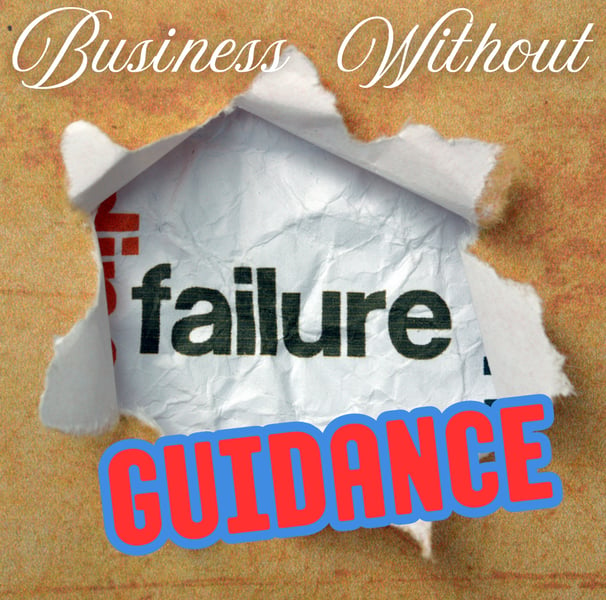Blog
90% STARTUPS FAILS EVERY YEAR
1. Lack of Market Demand
One of the leading causes of startup failure is building a product or service that nobody needs. Entrepreneurs often fall into the trap of creating solutions based on personal enthusiasm rather than actual market demand. Without conducting thorough market research, they risk launching products that fail to attract customers. According to a CB Insights study, 42% of startups fail because there is no market need for their offering.
2. Insufficient Funding and Poor Financial Management
Many startups fail due to financial struggles. Running out of cash is a major issue, as businesses often underestimate operational costs and overestimate revenue projections. Without a solid financial strategy, startups quickly burn through their funding before reaching profitability. Additionally, securing investor backing can be challenging, with many startups struggling to convince venture capitalists or banks to provide capital.
3. Weak Business Model
A strong business model is the backbone of a successful startup. Some entrepreneurs launch businesses without a clear monetization strategy, leading to unsustainable operations. While innovation is crucial, startups must have a well-defined plan for generating revenue, pricing their products, and maintaining profitability.
4. Poor Leadership and Management
The strength of a startup’s leadership team significantly influences its success or failure. Many startups fail due to inexperienced founders who lack essential management skills. Poor decision-making, lack of strategic vision, and inability to adapt to changing circumstances can doom a startup. Founders must surround themselves with experienced advisors, mentors, and a competent team to steer the company in the right direction.
5. Scaling Too Quickly
While growth is a key goal for startups, expanding too fast can be detrimental. Premature scaling—such as hiring too many employees, launching in multiple markets before establishing a solid customer base, or investing heavily in marketing without product validation—can strain a startup’s resources. According to Startup Genome, 74% of failed startups cite premature scaling as a reason for their collapse.
6. Fierce Competition
The business world is highly competitive, and startups often struggle to differentiate themselves from well-established companies with bigger budgets and brand recognition. Without a unique value proposition, startups risk being overshadowed by competitors who can offer similar products at lower prices or with better service.
7. Legal and Regulatory Challenges
Navigating legal requirements and industry regulations can be daunting, especially for startups in highly regulated sectors like finance, healthcare, and technology. Non-compliance with regulations can result in hefty fines, lawsuits, or even business shutdowns. Startups must ensure they understand and adhere to industry-specific legal frameworks from the outset.
8. Poor Marketing and Customer Acquisition Strategies
Even with a great product, startups must effectively reach and convert customers. Many fail because they do not have a well-defined marketing and sales strategy. Without a clear brand message, digital presence, or customer acquisition funnel, startups struggle to generate consistent revenue.
How Startups Can Increase Their Chances of Success
While the startup failure rate is high, there are steps entrepreneurs can take to improve their odds of survival. Here are some critical strategies for building a sustainable and successful startup:
1. Validate the Business Idea
Before investing heavily in a new venture, entrepreneurs must validate their ideas. Conducting market research, engaging with potential customers, and testing minimum viable products (MVPs) can help determine whether there is genuine demand for a product or service.
2. Secure Adequate Funding
Startups must have a solid financial plan and secure sufficient funding to support operations. This can come from various sources, including venture capital, angel investors, crowdfunding, or bootstrapping. Additionally, effective budgeting and cash flow management are crucial to avoid financial pitfalls.
3. Develop a Strong Business Model
A sustainable business model is essential for long-term success. Entrepreneurs should outline a clear revenue generation strategy, pricing model, and cost structure. A scalable business model helps startups adapt and grow efficiently.
4. Build a Competent Team
The right team can make or break a startup. Founders should hire skilled professionals who share their vision and bring diverse expertise to the company. Strong leadership and a cohesive team culture contribute significantly to business success.
5. Focus on Customer Needs
Understanding customer needs and delivering value should be at the core of every startup’s mission. Engaging with customers, gathering feedback, and continuously improving the product or service based on user preferences enhances customer satisfaction and loyalty.
6. Scale Smartly
Rather than rushing to expand, startups should focus on steady, strategic growth. Establishing a solid foundation before scaling—ensuring product-market fit, stable revenue streams, and operational efficiency—prevents premature failure.
7. Differentiate from Competitors
A unique value proposition sets successful startups apart from competitors. Entrepreneurs should identify what makes their business special and communicate it effectively to potential customers. Innovation, superior customer service, and branding play a crucial role in standing out in a crowded market.
8. Stay Compliant with Regulations
Understanding and adhering to legal requirements is crucial to avoid costly mistakes. Startups should consult legal experts to ensure compliance with industry regulations, protect intellectual property, and draft proper contracts and agreements.
9. Leverage Effective Marketing Strategies
A well-executed marketing strategy is vital for attracting and retaining customers. Startups should utilize digital marketing, social media, content marketing, and search engine optimization (SEO) to build brand awareness and drive sales.
Final Thoughts
While the 90% startup failure rate may seem discouraging, it doesn’t mean entrepreneurs should abandon their dreams. Many successful companies today, including Airbnb, Uber, and Amazon, faced challenges and setbacks before reaching global success. By understanding common pitfalls and implementing strategic measures, startups can significantly improve their chances of surviving and thriving in the competitive business landscape.
The key to startup success lies in thorough market research, financial prudence, strong leadership, customer-centric strategies, and adaptability. By learning from past failures and embracing a resilient mindset, entrepreneurs can defy the odds and build sustainable businesses that stand the test of time.


Why 90% of Startups Fail Every Year
The startup world is an exciting yet unforgiving space. Every year, thousands of entrepreneurs embark on their journeys, armed with innovative ideas and grand ambitions. However, statistics paint a sobering reality—90% of startups fail. While this figure might seem daunting, understanding the reasons behind these failures can help aspiring entrepreneurs navigate challenges and improve their chances of success.
Understanding Startup Failures
Startup failure isn’t random; it follows identifiable patterns. Many startups collapse due to a combination of financial, operational, and market-related reasons. Some of the most common factors leading to failure include lack of market demand, inadequate funding, poor management, intense competition, flawed business models, and regulatory challenges.






